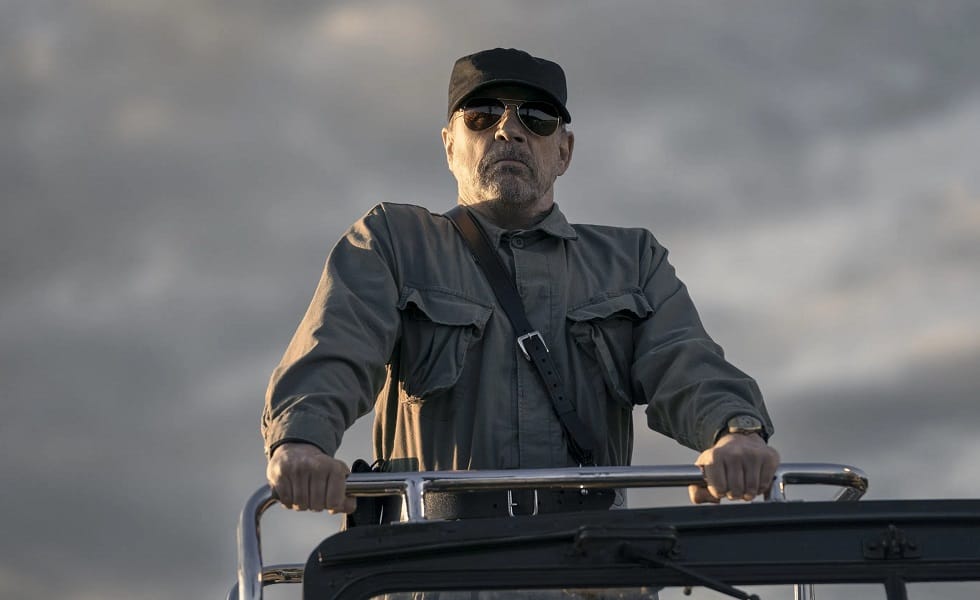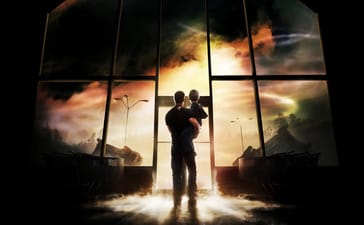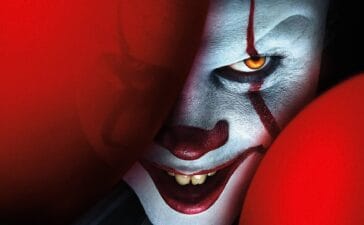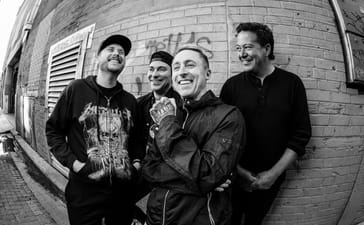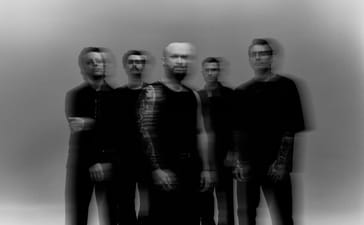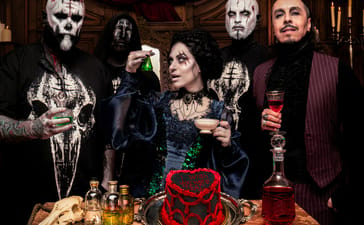We grabbed 15 minutes with Joker, Jedi, and genuinely nice guy Mark Hamill to talk about his terse turn in The Long Walk.
We got a polite but firm request just before our Zoom conversation with Mark Hamill: no Star Wars questions, please and thank you.
And fair enough, because Hamill’s storied career leaves no shortage of non-Jedi-related topics to cover. The specific subject today is his role in The Long Walk, Francis Lawrence’s long-awaited (And very good) adaptation of the novel Stephen King first published under his Richard Bachman pseudonym in 1979.
The film sees a group of 50 young men, played by the likes of Cooper Hoffman, David Jonsson, Roman Griffin Davis, and Charlie Plummer, embark on a winner-takes-all marathon walking competition – the “long walk” of the title. Which is grueling enough, but the story takes place in a chillingly mundane fascist United States run by a military junta. The Long Walk is a tool of control, and The Major, as played by a gruff, gung ho Hamill, the public face of the regime. Under his watchful eye, any walkers who fall by the wayside are summarily shot – last man walking wins.
That’s familiar territory for director Lawrence, a veteran of the Hunger Games franchise. But it’s a new look for Hamill, and we were keen to hear how he approached the role.
Travis Johnson: This is your second Stephen King adaptation in one year, and you’re no stranger to horror. I really liked you in John Carpenter’s Village of the Damned, which is an underappreciated gem.
Is there a reason that you’re canting towards darker stuff lately? The Life of Chuck isn’t necessarily dark, but because it’s from Stephen King, we kind of have a certain expectation attached to it.
Mark Hamill: Yeah, you know, they say if it ain’t on the page, it ain’t on the stage. So, to have someone as prolific and as gifted as Stephen King has just been fantastic for me. I also have to credit Mike Flanagan, who thought outside the box when he cast The Fall Of The House Of Usher. I mean, I’m used to playing a wide range of characters in voiceover, because since they cast with their ears, not their eyes, you’re able to play characters you would never get on camera. And like I say, the example of The Fall Of The House Of Usher, that would have been a routine part for me in animation, but never on camera. I’m really grateful for him to have thought of me.
Nevertheless, when you get past the gruesome premise of it, it’s much more like Stand By Me. It’s a story of how people react in extraordinary circumstances, and the heart and the soul of this piece are the walkers. I’m nominally the antagonist because, really, the state’s the antagonist, but I represent the state. So, you know, my job was clear cut.
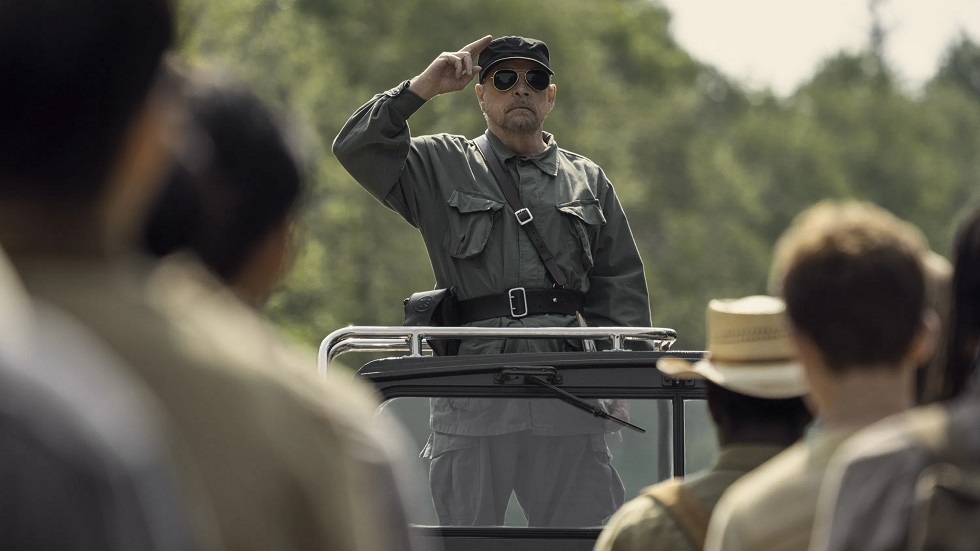
TJ: Absolutely. Now, the Major as a character is almost a symbol more than a person. He is the face of the state. How do you as an actor approach a character like that? Because you have limited interaction with the other performers and characters, you’re in a very specific uniform, you’ve got a look, you’re doing an interesting voice. How does that come together from the point of view of a performer who has to inhabit that character?
MH: Well, like I say, you read the material and say, what is required of me to make this as impactful as it can be? Stephen King is so versatile. I mean, there’s no supernatural elements whatsoever, and I think sometimes people type him as a horror writer or someone who deals in the supernatural all the time.
And with The Green Mile and Shawshank Redemption, The Long Walk, The Body, which is Stand By Me, he shows that he’s really more about people. It’s about the human condition and human nature under stressful circumstances, and this is a perfect example of that. I think J.T. Mollett, who wrote the script, did a magnificent job because he captures the essence of what Stephen King wrote and is very faithful to the source material.
TJ: I reread the book immediately after seeing the film, because I saw the film last week, and I hadn’t read the book since high school, because there are some differences. And in reading it again, I realised if you did a page-accurate adaptation, it would be like Come And See. It would be a potentially great film which is almost too depressing to watch. Were you familiar with the book like as a younger man?
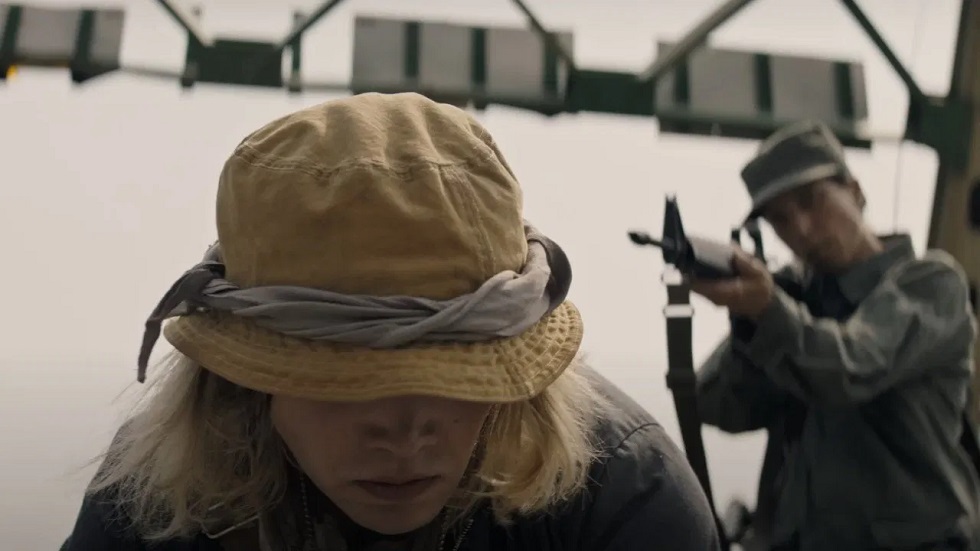
MH: No, I was not familiar with it. With Stephen King, it seems a pattern. I’ll see the movie of The Shining and then go immediately to the bookstore, buy the book to read – what the hell did I just see? And of course, in a book, he can include people’s thoughts, he can describe things. I mean, in the book you realize how the hotel became haunted in the first place – it was a gangland slaying. I mean, there’s so much more detail in the book, and that’s a much more complex story than The Long Walk. But like I say, I think they did a great job of transferring it from page to screen.
TJ: Many filmmakers have attempted this over the years. George Romero was first attached way back in the ’80s.
MH: I read that, I read that. I was amazed because not only did they talk about George Romero, but it was set up several other times with people attached, directors and all of that. It’s a mystery how anything gets made.
But we’re so lucky to have Francis Lawrence. I had trepidations about it just due to the violence and it was just sort of grim. But after a conversation with Francis Lawrence I thought, wow, he gets it, he understands my reservations, and he seems like the perfect person to do it. Once he decides on who should play the character, he gives you a lot of freedom in terms of how you want to portray the character. He’s not in there tweaking and saying do this, do that, he’s very open to questions and so forth – just the perfect director in my eyes.

TJ: Were you kept fairly isolated on set?
MH: I’m not really involved in the journey that these young guys take, so I wasn’t really around to see, except towards the end when I’m with McVries (Jonsson) and with Garrity (Hoffman). So, seeing the movie for the first time was a revelation for me, because I just can’t tell you how impressed I am with this cast. I think you’re going to hear a lot from them over the years. The only one that I knew was Roman Griffith Davies, because I’d seen Jojo Rabbit, and he was in a movie I did called The King of Kings, but it was animated and we recorded separately, so I didn’t meet him until The Long Walk.
TJ: What was it like working with this huge group of young actors who are obviously aware of your career? What was the dynamic like?
MH: Well, I had planned to invite all of the cast over to where we were staying in Winnipeg on a Saturday or Sunday as a get-together kind of event, and the director told me, well, Cooper doesn’t want to meet you. And I said, why? He said, he wants to keep you in character. And I understood – that’s his process. I totally respect that. I get it. And I remember Francis saying, “He’s afraid he’s going to like you.”
With The Long Walk, I was isolated from the main cast. I’m in a Jeep, they’re on foot. I do major exposition at the very beginning, and I’m just such a driven, horrible person. You have a feeling that there’s something really wrong, fundamentally wrong with this man. If I do my job correctly, everyone will hate my guts. And I’m good with that.
The Long Walk is in cinemas now.


